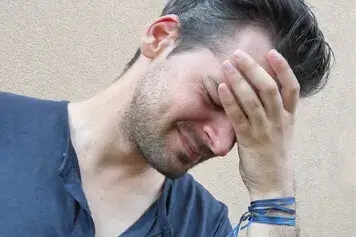
Tension headaches are the most common type of headache, experienced by almost 80% of adults at some point in their lives. This type of headache typically presents as pain, soreness, or throbbing, that starts in the neck and radiates up along the sides of the head and behind the eyes and it can feel like a belt is being tightened around your head. Tension headaches most often appear in the afternoon to evening, and can last from half an hour to several days or more.
Types of Tension Headache
Officially, tension headaches are divided into two main groups, episodic and chronic. Episodic tension headaches typically begin in the afternoon, gradually getting worse, before going away. Chronic tension headaches, on the other hand, can take quite a long time, sometimes days or even weeks to resolve, sometimes, never really stopping, only fluctuating in intensity.
The Causes
There can be many contributing factors to tension headache. Because these headaches often begin in the afternoons, factors that contribute include:
- Fatigue
- Dehydration
- Caffeine or Alcohol Use
- Hunger / Low Blood Sugar
- Anxiety / Stress
The most important contributing factor in most cases, however, is posture. Tension headaches are a frequent symptom of a postural distortion called “Upper Crossed Syndrome“. In this condition, weakness in the muscles in the front of the neck, called “deep neck flexors” allows the head to protrude, creating a lot of stress on the muscles in the back of the neck, while they try to keep the head balanced on top of the neck. Coupled with tight shoulder muscles, the pain from these muscle groups radiates up the back of the neck to the sides of the head and around behind the eyes.
Treatment
The good news is that most cases of this type of headache are really quite treatable. A chiropractor can evaluate the different causes of headaches, and examine you to see whether your posture or ergonomics are a significant contributing factor. If so, treatment usually involves stretching, strengthening exercises, and spinal adjusting. You’ll generally be given a home exercise plan to re-balance the muscles of the upper body and neck. Sometimes, nutritional supplements such as magnesium or fish oils are used to manage muscle spasms or inflammation.
Your Englewood, NJ Chiropractor Dr. Press and Dr. Geleta have many years of experience in diagnosing and treating headaches. Call (201) 569-1444 and have your headaches evaluated today.
Welcome to North Jersey Whole Health Center, LLC we offer services such as Chiropractic Manipulative Therapy, Gait Scan Technology, Nutritional Medicine, Orthotics and Supports, Phonophoresis, Physical Examinations, Physiotherapy.
Read more of our blogs.
